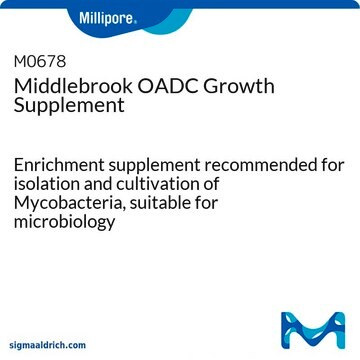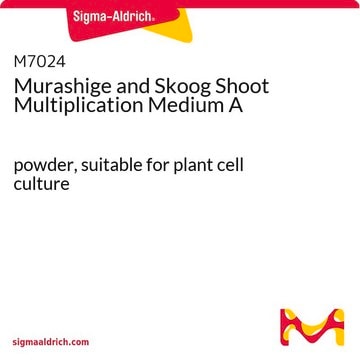H0665
Monoclonal Anti-Hepatocyte Growth Factor antibody produced in mouse
clone 24516, purified immunoglobulin, lyophilized powder
Sinonimo/i:
Anti-HGF
Scegli un formato
943,00 €
Scegli un formato
About This Item
943,00 €
Prodotti consigliati
Origine biologica
mouse
Livello qualitativo
Coniugato
unconjugated
Forma dell’anticorpo
purified immunoglobulin
Tipo di anticorpo
primary antibodies
Clone
24516, monoclonal
Stato
lyophilized powder
Reattività contro le specie
human
tecniche
capture ELISA: 2-8 μg/mL
western blot: 1-2 μg/mL
Isotipo
IgG1
N° accesso UniProt
Temperatura di conservazione
−20°C
modifica post-traduzionali bersaglio
unmodified
Informazioni sul gene
human ... IL4(3565)
Cerchi prodotti simili? Visita Guida al confronto tra prodotti
Descrizione generale
Monoclonal Anti-Hepatocyte Growth Factor recognizes human HGF. The antibody shows less that 0.25% cross-reactivity with recombinant human Macrophage Stimulating Protein (MSP).
Immunogeno
Applicazioni
Stato fisico
Esclusione di responsabilità
Non trovi il prodotto giusto?
Prova il nostro Motore di ricerca dei prodotti.
Prodotti correlati
Codice della classe di stoccaggio
13 - Non Combustible Solids
Classe di pericolosità dell'acqua (WGK)
WGK 1
Punto d’infiammabilità (°F)
Not applicable
Punto d’infiammabilità (°C)
Not applicable
Dispositivi di protezione individuale
Eyeshields, Gloves, type N95 (US)
Scegli una delle versioni più recenti:
Certificati d'analisi (COA)
Non trovi la versione di tuo interesse?
Se hai bisogno di una versione specifica, puoi cercare il certificato tramite il numero di lotto.
Possiedi già questo prodotto?
I documenti relativi ai prodotti acquistati recentemente sono disponibili nell’Archivio dei documenti.
Filtri attivi
Il team dei nostri ricercatori vanta grande esperienza in tutte le aree della ricerca quali Life Science, scienza dei materiali, sintesi chimica, cromatografia, discipline analitiche, ecc..
Contatta l'Assistenza Tecnica.








